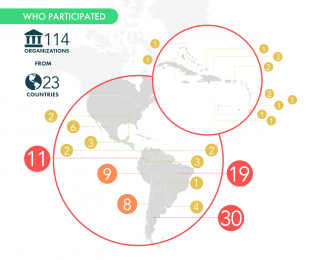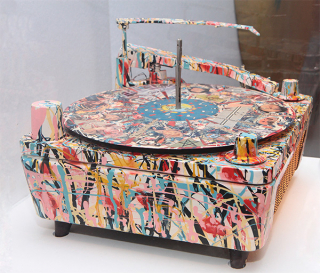Click to enlarge
The vibrant heritage of Latin America and the Caribbean includes diverse and prominent contemporary cultural expressions, World Heritage sites, ancient cultures and subcultures, strong links to the environment, and rich indigenous knowledge.
ICCROM’s regional programme for Latin America and the Caribbean (LAC) aims to promote the integrated and sustainable management of this heritage, paying particular attention to major issues specific to the region – one of which is contemporary heritage.
As part of the LAC initiative, ICCROM carried out a regional survey to better understand the state of contemporary art collections. With the participation of 114 organizations from 23 countries and territories, it provided critical evidence and a meaningful overview to underpin future developments in this area.
We are pleased to share the survey results with our Member States and the international professional community. They are available for download in two formats (report and infographic), both in Spanish and English.
The regional profile emerging from the survey highlights key needs and opportunities to improve the conservation and management of contemporary art collections in Latin America and the Caribbean.
In collaboration with Member States and partners in the LAC region and beyond, ICCROM will use these results to inform the development of effective and integrated capacity-building initiatives. A tailored proposal will be designed to address the core issues identified in the survey in a sustainable manner.
ICCROM thanks all the professionals and organizations that participated in the survey and invites everyone with an interest in contributing to the conservation and management of contemporary art in Latin America and the Caribbean to contact us at: LatinAmerica@iccrom.org.
Our special thanks go to the Ministry of Culture of Argentina for its collaboration and invaluable support in pretesting and refining the survey questions through a pilot study carried out nationally in 2017.


